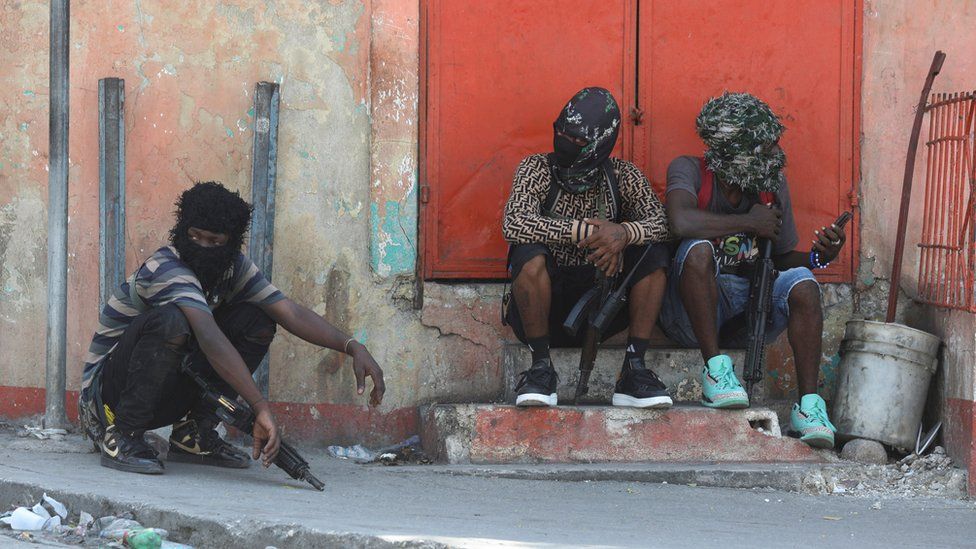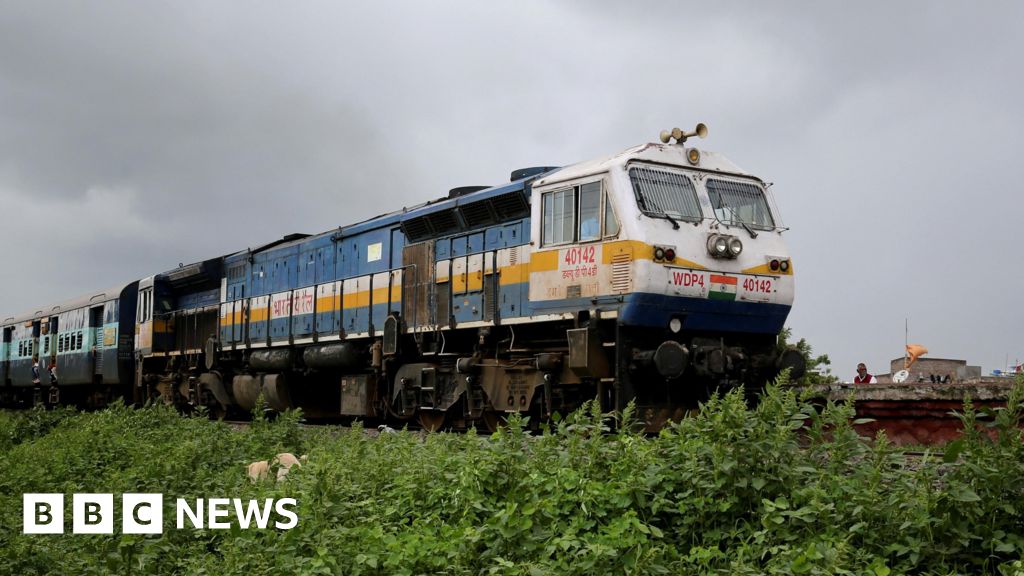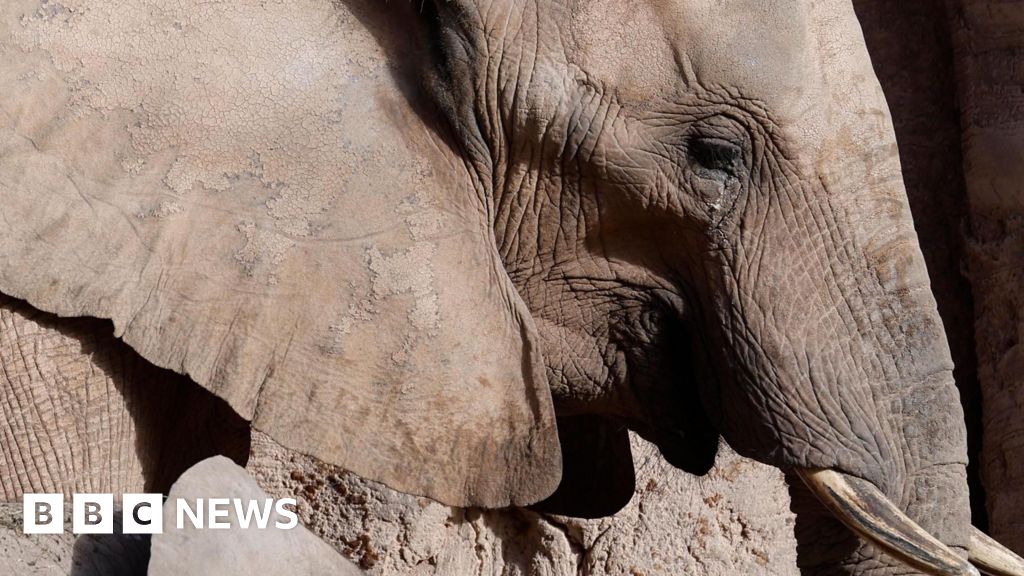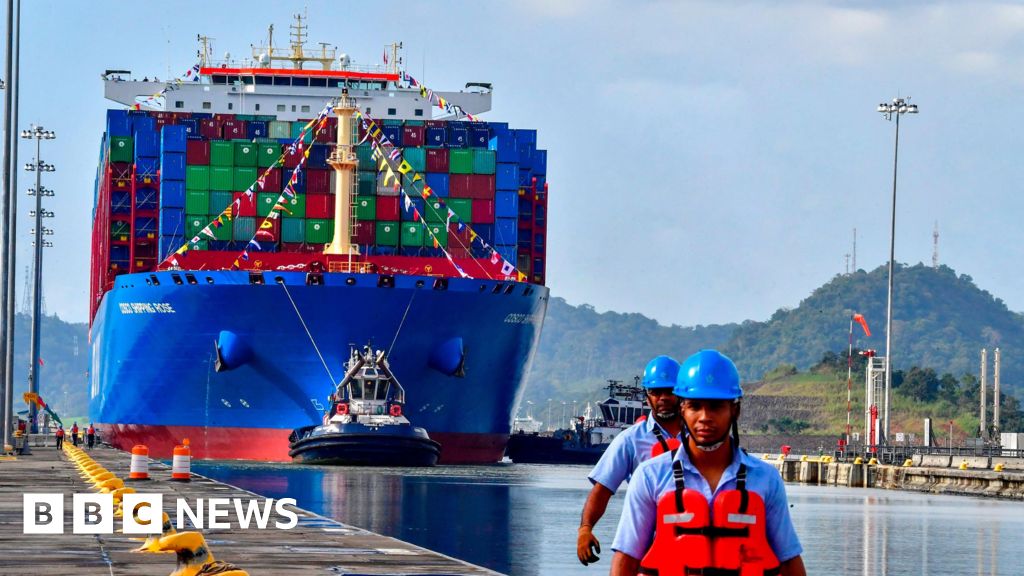ARTICLE AD BOX
 Image source, Reuters
Image source, Reuters
A coalition of gangs in Haiti have united in an attack against the state
By Will Grant, Central America correspondent & James Gregory
BBC News
The US says it will contribute a further $100m (£78m) to an international security force in Haiti as violence grips the country.
US Secretary of State Antony Blinken said nations were "coming together in a positive direction" over the crisis following emergency talks on Monday.
Plans for a speedy political transition were also discussed in Jamaica.
Heavily armed gangs are demanding the resignation of Haiti's unelected Prime Minister, Ariel Henry.
The proposed US contribution to the security force now stands at $300m following Mr Blinken's announcement, with a further $33m allocated for humanitarian aid.
The UN-backed force is expected to be led by Kenya after earlier domestic legal challenges appear to have been overcome.
Mr Henry was on a visit to Kenya to sign a deal on the deployment of the force when the latest outbreak of violence began earlier this month. He is currently stranded in Puerto Rico after sustained attacks on Haiti's international airport prevented him from returning.
Haiti has since then descended into further anarchy, leading to a growing sense of urgency in the Caribbean.
Speaking after talks with Caribbean leaders in Kingston on Monday, Mr Blinken said Haiti was facing a "critical moment" and that he hoped progress would be made.
Guyana's President Irfaan Ali, the head of the Caricom group of Caribbean countries, said he was "very confident that we have found commonality, and we have found a common path, through which we can support a Haitian-led solution and Haitian-owned solution".
The Caribbean Community is expected to urge Mr Henry's resignation as the first step towards a transitional administration, in the hopes of paving the way to the first elections in the country since 2016.
The White House, which initially backed Mr Henry, is now likely to agree.
But even if the prime minister does step down, Haiti faces huge challenges.
The UN World Food Programme warned that almost 1.5m people in the Haitian capital Port-au-Prince are facing famine in the country's biggest humanitarian crisis since the 2010 earthquake, which claimed the lives of 200,000 people.
Image source, Reuters
Image caption,Mr Blinken flew out to Jamaica for a hastily-convened meeting
El Salvador's President Nayib Bukele has claimed he can "fix" the crisis. Without providing details, he said any plan had to be accompanied with a UN resolution and Haitian consent.
Mr Bukele is popular at home and across Latin America for his crackdown on gangs, though rights activists have raised the alarm over arbitrary arrests and inhumane prison conditions.
El Salvador's Foreign Minister Alexandra Hill Tinoco told BBC Radio 4's The World Tonight programme: "Haiti deserves to live in conditions of peace, security and prosperity. We can deeply relate to Haiti because we were facing a similar situation in 2019.
"We believe there's not a common recipe that will serve all, yet our experience I believe is an extremely valuable one and can be adapted to Haiti's needs."
Mr Henry was sworn in as the successor to President Jovenel Moïse in July 2021 following his assassination.
Haiti: The basics
- The Caribbean country shares a border with the Dominican Republic and has an estimated population of 11.5 million
- It has a land area of 27,800 sq km, which is slightly smaller than Belgium and about the same size as the US state of Maryland
- Chronic instability, dictatorships and natural disasters in recent decades have left Haiti the poorest nation in the Americas
- An earthquake in 2010 killed more than 200,000 people and caused extensive damage to infrastructure and the economy
- A UN peacekeeping force was put in place in 2004 to help stabilise the country and only withdrew in 2017
- In July 2021, President Jovenel Moïse was assassinated by unidentified gunmen in Port-au-Prince. Amid political stalemate, the country continues to be wracked by unrest and gang violence

 10 months ago
31
10 months ago
31








 English (US) ·
English (US) ·